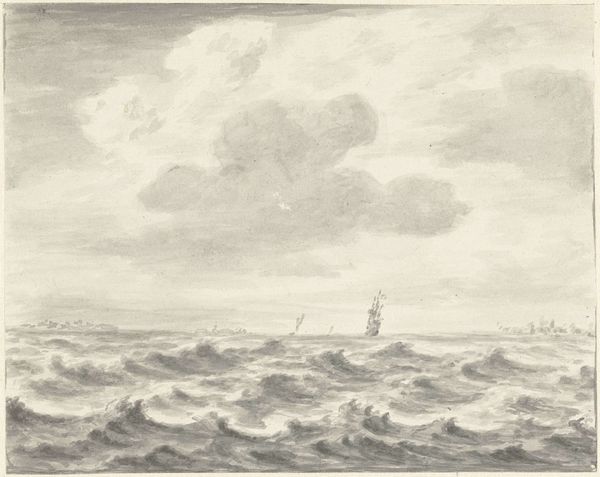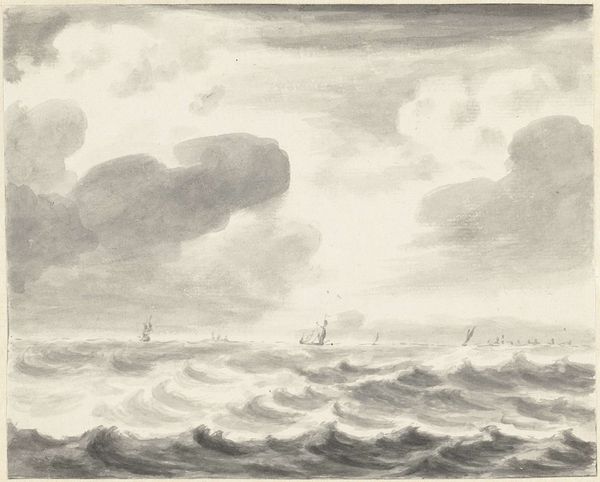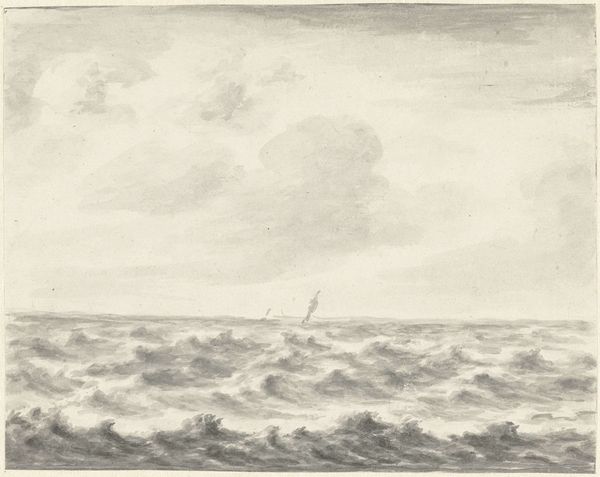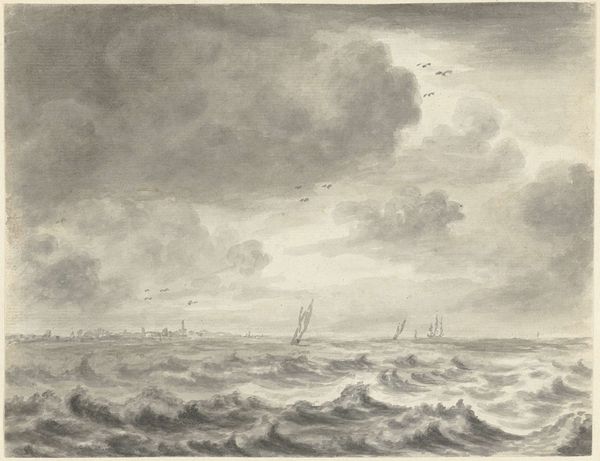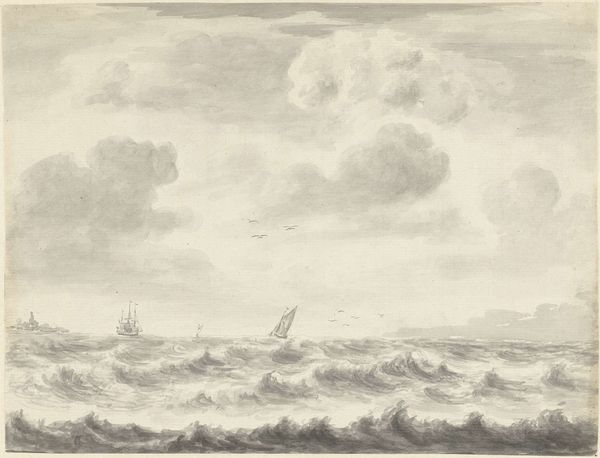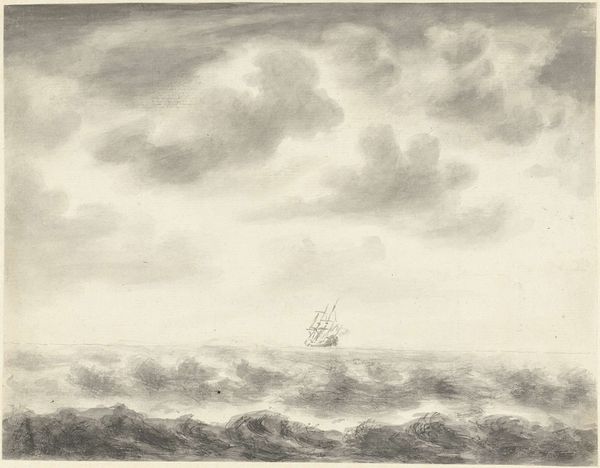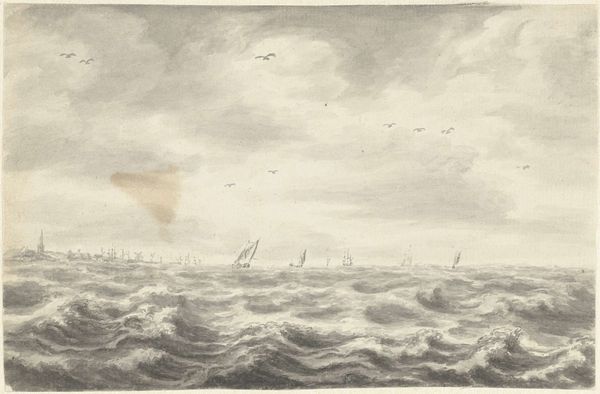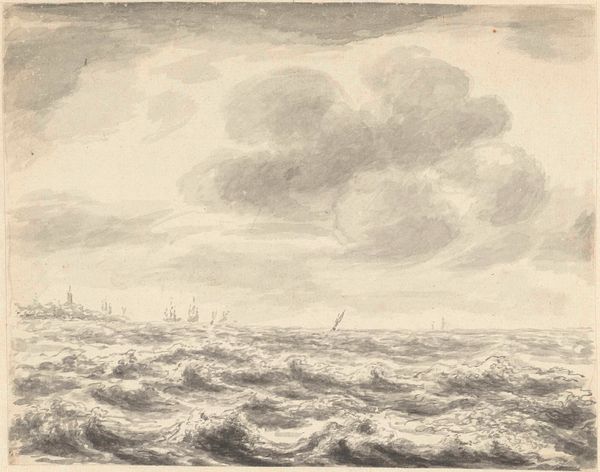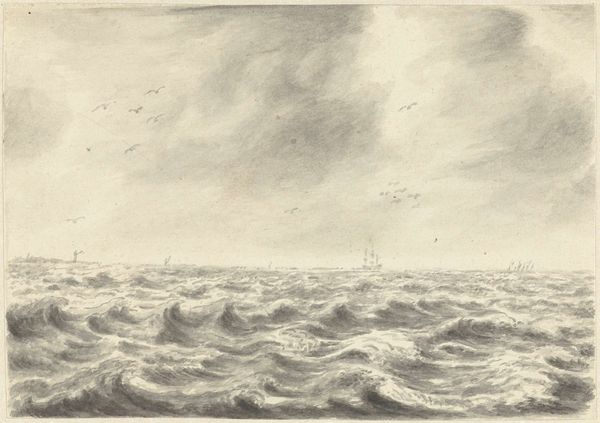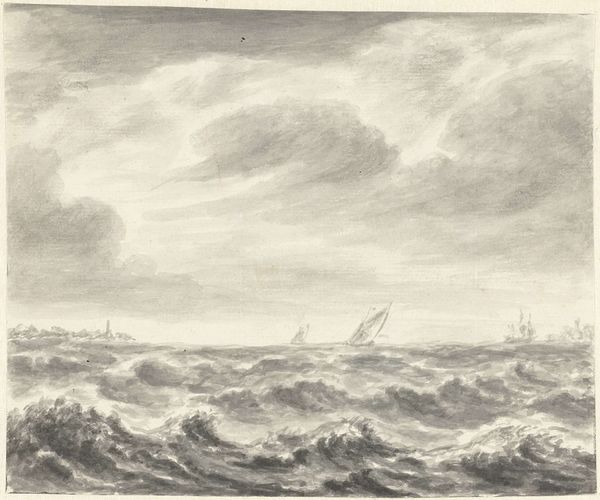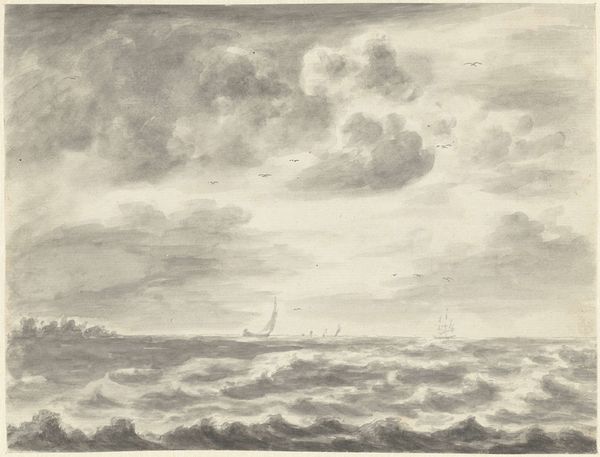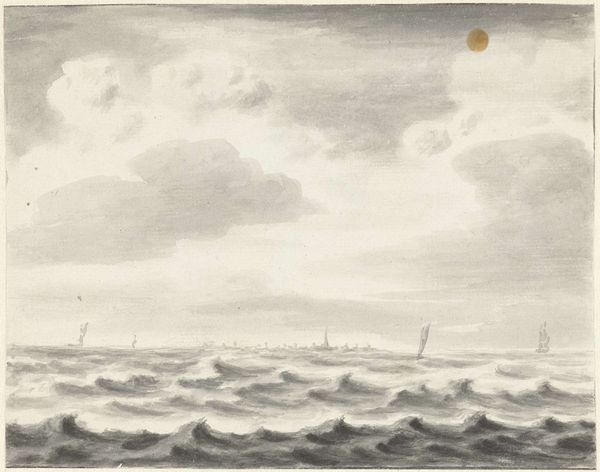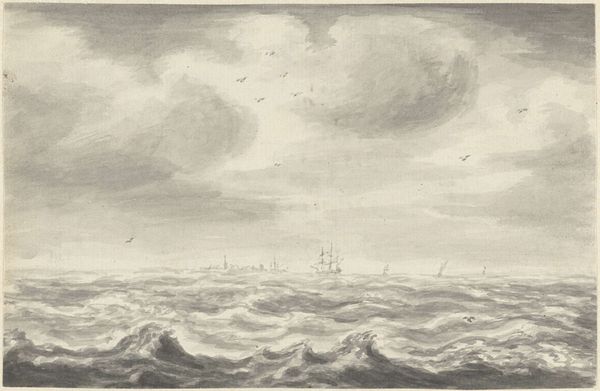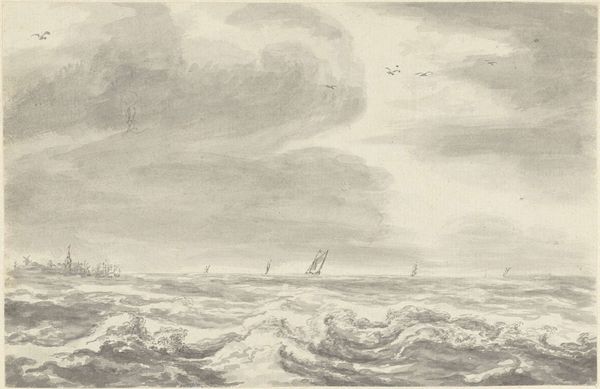
drawing, paper, ink
#
pencil drawn
#
drawing
#
dutch-golden-age
#
pencil sketch
#
landscape
#
charcoal drawing
#
paper
#
ink
#
pencil drawing
#
genre-painting
Dimensions: height 145 mm, width 188 mm
Copyright: Rijks Museum: Open Domain
Curator: Pieter Idserts' "Zeegezicht", created sometime between 1708 and 1781 using ink and pencil on paper, is now before us. Editor: It's evocative. There's a distinct melancholy about it; the grey hues and rough seas suggest a world of instability, maybe a premonition of tumultuous historical changes. Curator: Note the careful gradations of tone. The artist captures the sea's restless motion with such economy of line, the dark swells contrasted against the pale sky. Consider the delicate tonal arrangements—each plane differentiated by subtle value shifts, a remarkable orchestration. Editor: Precisely, and these values carry social weight. For Dutch citizens then, the sea represented a source of wealth and potential disaster. So what tensions are contained within what might otherwise seem a serene landscape? Whose freedom, whose wealth? Curator: Let’s appreciate the inherent qualities, irrespective of externalities. How the horizontal composition emphasizes the expanse of the water, directing our gaze to the vanishing point on the horizon—a brilliant strategy to amplify the sublimity of nature. The scale of water against that of these fragile vessels really highlights their drama. Editor: And those tiny vessels are not merely aesthetic devices, but representations of trade and exploration, inherently tied to colonialism and exploitation. A socio-political understanding reminds us these tranquil images were founded on exploitation. The pencil captures exploitation’s roughshod power. Curator: I understand your reading. I am focused on how Idserts mastered a monochrome palette, a skillful dance of light and shadow which renders atmospheric conditions tangible, so compelling to view. Editor: Indeed, an important exercise, provided that our formalism never drifts into political formalism—forgetting our social world, just seeing shapes and forms without remembering our roots. That to me is paramount. Curator: A balancing act. One must maintain fidelity both to the object and our shared history. Editor: I'd only gently add to always let this "Zeegezicht", remind of us, too, our political and historic charge as well as what it seems. A lot, no? Curator: Agreed, we're barely skimming its surfaces here—or should I say depths?
Comments
No comments
Be the first to comment and join the conversation on the ultimate creative platform.
